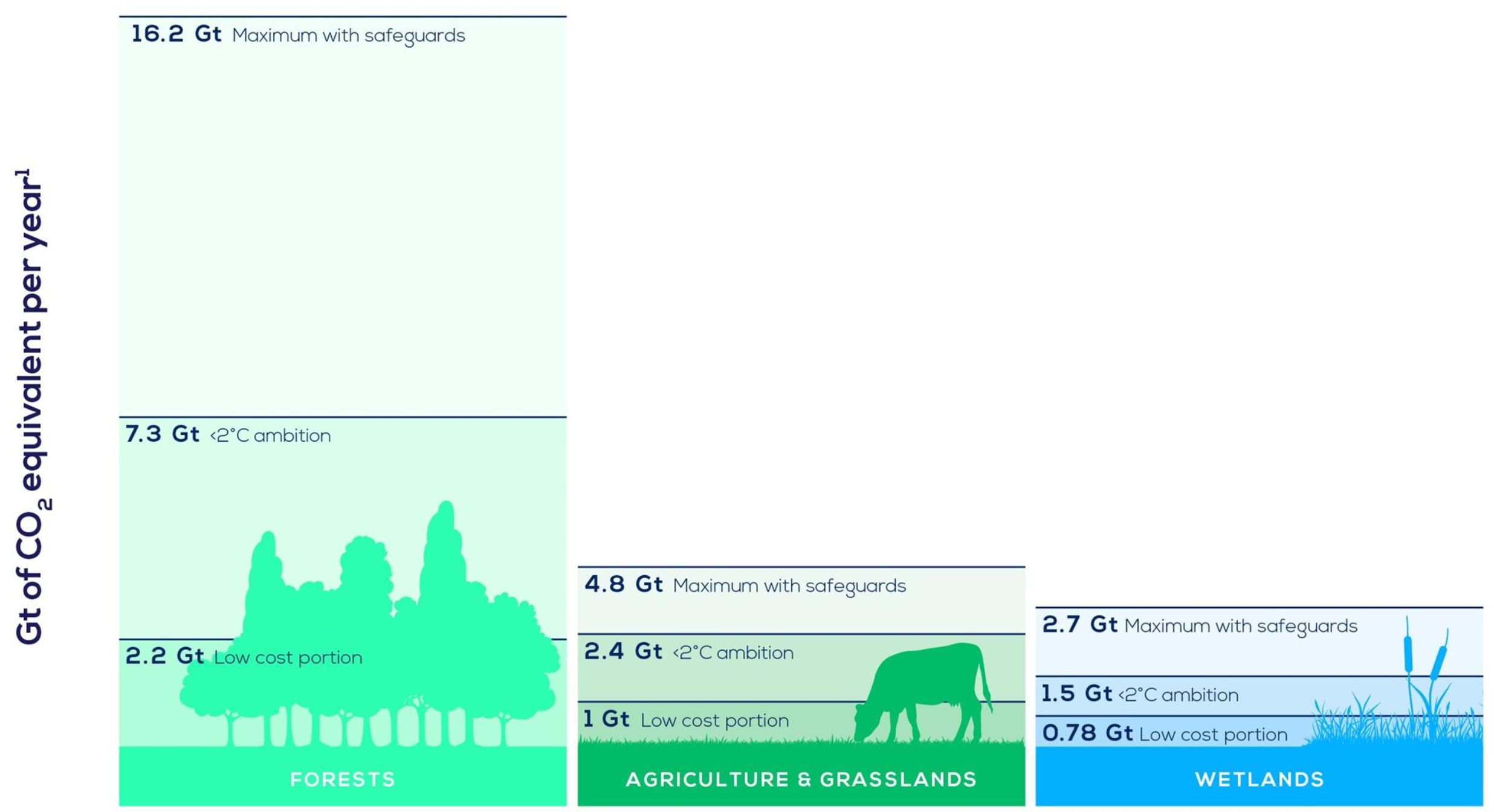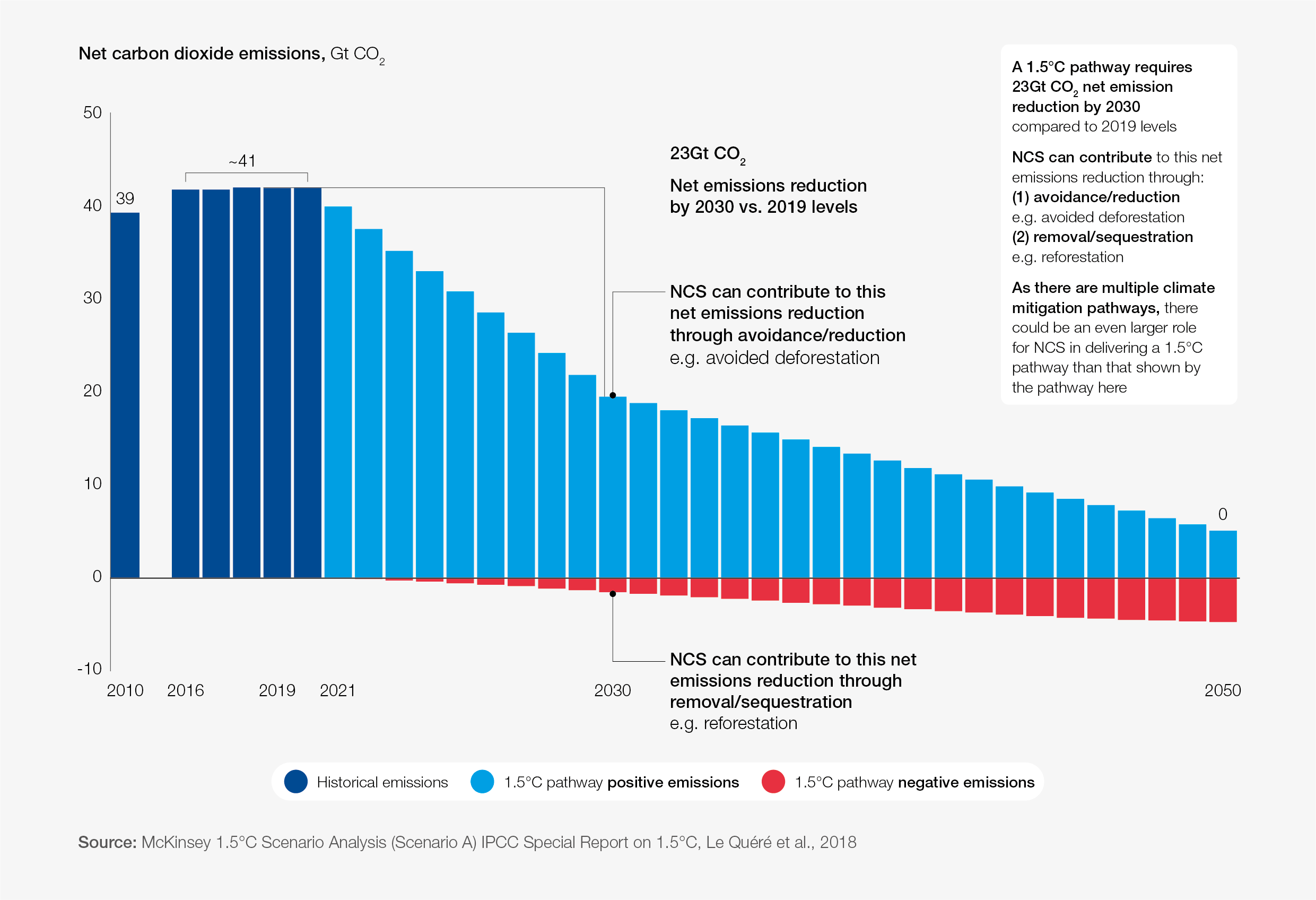Soil could help in the fight against climate change - or make it worse. The outcome is in our hands
Soil has emerged as a key resource in the fight against climate change, because of its ability to retain carbon.
Image: Unsplash/ Paul Mocan
Stay up to date:
One Trillion Trees
- The world’s soils capture more carbon than biomass and the atmosphere combined.
- So increasing their ability to store carbon could have a big impact on climate change.
- Scientists say improving soil health could lead to an extra 2 billion tonnes of CO2 being sequestered by 2030.
- The World Economic Forum’s Carbon Market Challenge is seeking new ways to unleash needed innovations to make that happen.
Improving and preserving soil carbon is increasingly recognized as a critical action to tackle climate change while offering many environmental and social core benefits.
Soil stores more of the world’s carbon than biomass (vegetation) and the atmosphere combined, according to the International Union for Conservation of Nature (IUCN), making it a major carbon sink along oceans and forests. And increasing the carbon stocks in the top metre of the soil by just 1% would capture more carbon than total annual global emissions from burning fossil fuels.
Introducing more sustainable land management techniques could rapidly achieve this goal, says the IUCN. But first, we need to quantify, monitor and account for organic carbon better, understand soil carbon dynamics, and increase global awareness of the need for more regenerative practices. These actions need to be coupled with financial incentives and capacity building for farmers to adopt climate-smart practices to ensure an equitable and successful transition.
Back to basics
Much of the carbon in the soil is in the form of other organic matter like microbes, fungi and invertebrates as well as roots and decomposing plants. Studies show a staggering 133 Gt of CO2e, accounting for 8% of historical stocks, has been lost from the world's soils since the dawn of agriculture.
When soils lose their carbon, they become degraded and unable to provide nutrients supporting plant growth and biodiversity. The combination of nutrient loss, erosion and weather variability can lead to dire consequences like desertification, affecting vulnerable groups and leading to displacements as well as famines.
So improving the soil’s ability to capture and retain carbon not only contributes to mitigating and adapting to climate change but makes land more suitable to sustain biodiversity and preserve food security. Our food systems are extremely vulnerable to climate change, and the world needs resilient soils to produce about 70% more food by 2050 to feed an estimated 9 billion people.
Improving land management practices, such as cover cropping, conservation tillage, agroforestry, and rotational grazing can go a long way in improving soil carbon, while also decarbonizing our food systems.
The world’s rangelands cover 54% of the world and contain more than a third of all terrestrial carbon reserves. Because of their fertile soils, much of the original area of grassland and rangeland ecosystems have already been cleared for the cultivation of crops. Stopping overgrazing and improving the soils could capture a further 1,300-2,000 million tonnes of CO2 by 2030, according to the IUCN. Another ecosystem rich in soil carbon stocks are peatlands which are estimated to sequester over 550 Gt, despite covering only about 3% of the global land surface.
Protecting and managing soil carbon-rich ecosystems, and increasing soil health by reversing land degradation, thus provides a cost-effective triple win for people, planet and climate.
Accept our marketing cookies to access this content.
These cookies are currently disabled in your browser.
Innovation is the key
However, to unlock the potential of soil carbon as a natural solution, the transition to climate-smart and regenerative practices needs to be catalyzed by innovations that can create the right tools and incentives for farmers and different stakeholders. Sustainable business models, capacity building, carbon finance, and leveraging the voluntary carbon markets can be harnessed to scale real change.
Which is why the World Economic Forum’s innovation crowdsourcing platform Uplink has launched a new carbon challenge to help fund initiatives to increase the ability of soils to store carbon.
The Carbon Market Challenge aims to channel funding to support projects that fight climate change using natural climate solutions.
The Forum hopes the Challenge will help to increase trust, transparency and legitimacy in carbon markets, which have come in for criticism in the past. At the same time, it hopes to generate large-scale projects to fight climate change.
The best 10 to 20 submissions will be invited to join a four-month accelerator programme facilitated by the Forum, in collaboration with the Natural Climate Solutions Alliance, 1t.org and partners. Submissions are open from now until 5 September, 2021.
What is the World Economic Forum doing on natural climate solutions?
Accept our marketing cookies to access this content.
These cookies are currently disabled in your browser.
Don't miss any update on this topic
Create a free account and access your personalized content collection with our latest publications and analyses.
License and Republishing
World Economic Forum articles may be republished in accordance with the Creative Commons Attribution-NonCommercial-NoDerivatives 4.0 International Public License, and in accordance with our Terms of Use.
The views expressed in this article are those of the author alone and not the World Economic Forum.
Related topics:
Forum Stories newsletter
Bringing you weekly curated insights and analysis on the global issues that matter.
More on Health and Healthcare SystemsSee all
Sofiat Makanjuola-Akinola and Dr Zainab Shinkafi-Bagudu
May 19, 2025
Shyam Bishen and Lorna Friedman
May 19, 2025
Shyam Bishen
May 19, 2025






